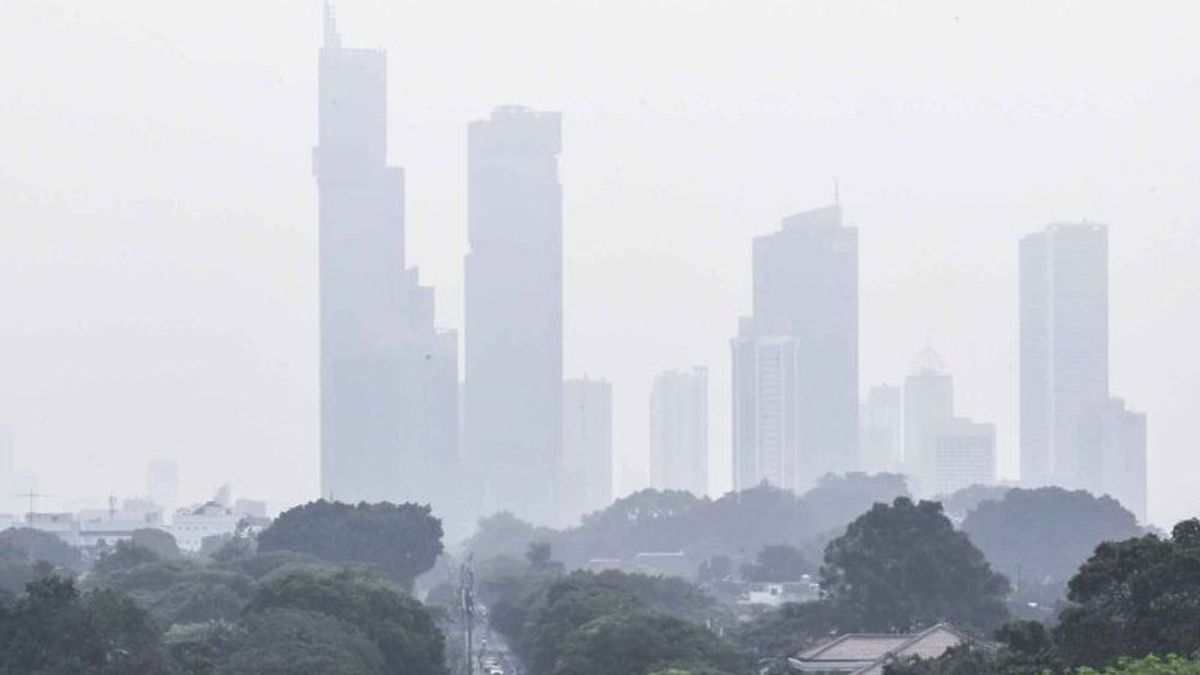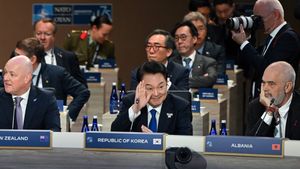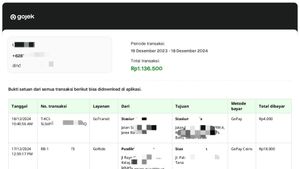JAKARTA - Jakarta's air quality is in the unhealthy category and is in the second worst position in the world so that people are recommended to wear masks when doing outdoor activities.
On the official IQR page reported by ANTARA, the air quality index (AQI) in Jakarta is at 165, with a smooth particle number (particulate matter / PM) 2.5 at a concentration rate of 75 micrograms per cubic meter.
This concentration is equivalent to 15 times the annual air quality guide value of the World Health Organization (WHO).
On Friday, June 14, the air quality monitoring site recorded that Jakarta is the city with air quality at its second worst position in the world, after Kinshasa City, Congo, at 183.
For this reason, people are recommended to avoid outdoor activities, wear masks while outside, and close windows to avoid dirty outside air, and turn on air filters.
Meanwhile, data from the Environmental Information and Hygiene System of the DKI Jakarta Provincial Environment Agency stated that from five monitoring points, it shows that the air quality in Jakarta for PM2.5 air pollution is in the moderate category.
Five air quality monitoring locations in Kelapa Gading showed that on Friday morning at 76, Kebon Jeruk at 68, HI 63 Roundabout, Lubang Buaya at 79, and Jagakarsa at 90.
Moderate categories mean air quality levels that do not affect human or animal health but affect sensitive plants.
Meanwhile, for unhealthy categories, namely the level of air quality which is detrimental to humans or groups of animals that are sensitive or can cause damage to plants or aesthetic values.
Previously, the Head of the DKI Jakarta Environmental Agency, Asep Kuswanto, said that DLH was committed to creating a quality environment, one of which was by improving air quality so that residents could carry out activities in a healthy manner.
"The steps are already there, the DKI Jakarta Provincial Government implements an air quality control strategy (SPPU) until 2030, including a strategy to achieve the health of its citizens," he said.
SEE ALSO:
Asep hopes that by integrating campaigns in these two fields, they can achieve maximum results for the good of Jakarta residents.
"The goal of this campaign can make Jakartans live a healthy lifestyle and care more about the environment," he said.
The English, Chinese, Japanese, Arabic, and French versions are automatically generated by the AI. So there may still be inaccuracies in translating, please always see Indonesian as our main language. (system supported by DigitalSiber.id)
















